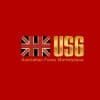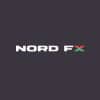Deutsche Lufthansa has announced a significant increase in revenue and profit for the second quarter, driven by strong demand that is expected to continue throughout the year. Passengers are eager to make up for lost time due to the Covid-19 pandemic, especially in premium cabins.
During the three months ending in June, the German carrier group recorded revenue of €9.39 billion ($10.27 billion), representing a 17% year-on-year growth. The group’s airlines, including Swiss, Austrian Airlines, Brussels Airlines, and Eurowings, saw an increase in passengers, reaching 33.3 million compared to 29.2 million last year.
The quarter also saw a rise in the number of passengers willing to pay for premium cabins, along with an increasing demand for corporate travel. Lufthansa expects business travel levels to reach 70% of pre-pandemic levels by the end of 2023.
Furthermore, the group’s net profit for the quarter surged to €881 million, up from €259 million the previous year. Adjusted earnings before interest and taxes, which is Lufthansa’s preferred measure of profitability, nearly tripled to €1.09 billion.
According to analysts’ estimates provided by the company, revenue was forecasted to be €9.40 billion, with a profit of €713 million and adjusted earnings of €1.04 billion.
In terms of capacity, Lufthansa operated at 83% compared to 2019 levels. However, the quarter experienced challenges with bottlenecks, particularly in relation to handling service providers and air traffic control.
The Labor Shortage Challenge in the Airline Industry
The airline industry has been grappling with a labor shortage since last summer due to an unexpected surge in demand for seats following the Covid-19 pandemic. This surge forced operators to rapidly rebuild their networks, leading to widespread staffing shortages and months of travel chaos for passengers. However, the shortage has been gradually easing recently.
In addition to the labor shortage, airlines have been facing supply-chain issues that make it difficult to procure spare parts and deploy aircraft where needed. The impact of inflation has also affected carriers, as they have had to absorb higher costs.
One airline, Lufthansa, has reported that its expenses have increased significantly, particularly for air traffic control, airport charges, maintenance, and spare parts. This echoes similar statements from other carriers, such as the Franco-Dutch group Air France-KLM, which also highlighted rising salaries as a contributing factor.
Despite these challenges, Lufthansa remains optimistic about the future. Bookings from August through December are already averaging more than 90% of pre-pandemic levels, indicating strong demand for tickets. However, bottlenecks in the European air traffic system and ongoing supply-chain issues may limit capacity for the year. As a result, Lufthansa now expects capacity to be around 85% compared to the pre-pandemic levels of 2019, revising its previous forecast of 85-90%.
Despite these challenges, Lufthansa is forecasting an adjusted EBIT of more than EUR2.6 billion this year. If achieved, this would be one of the airline’s best financial results in its history.
Sourced from The Wall Street Journal








Leave a Reply